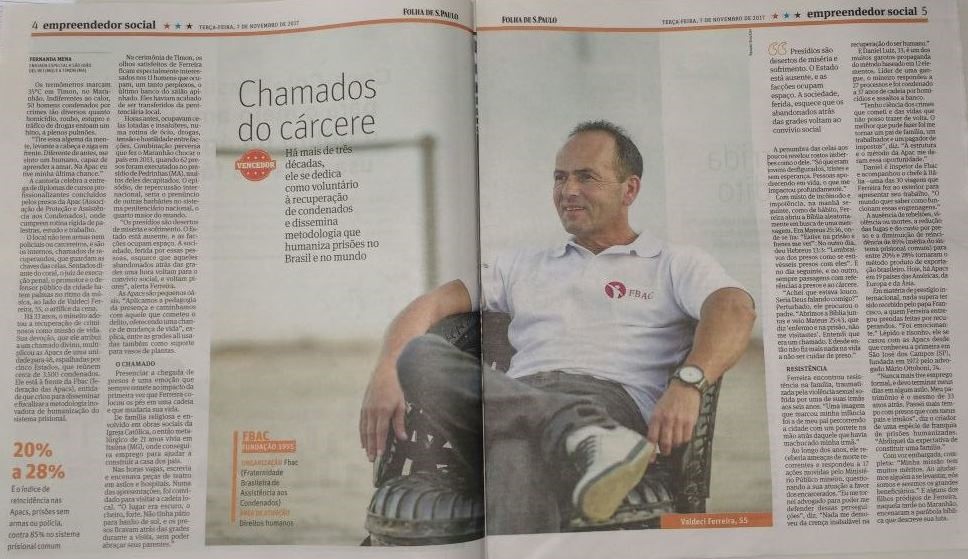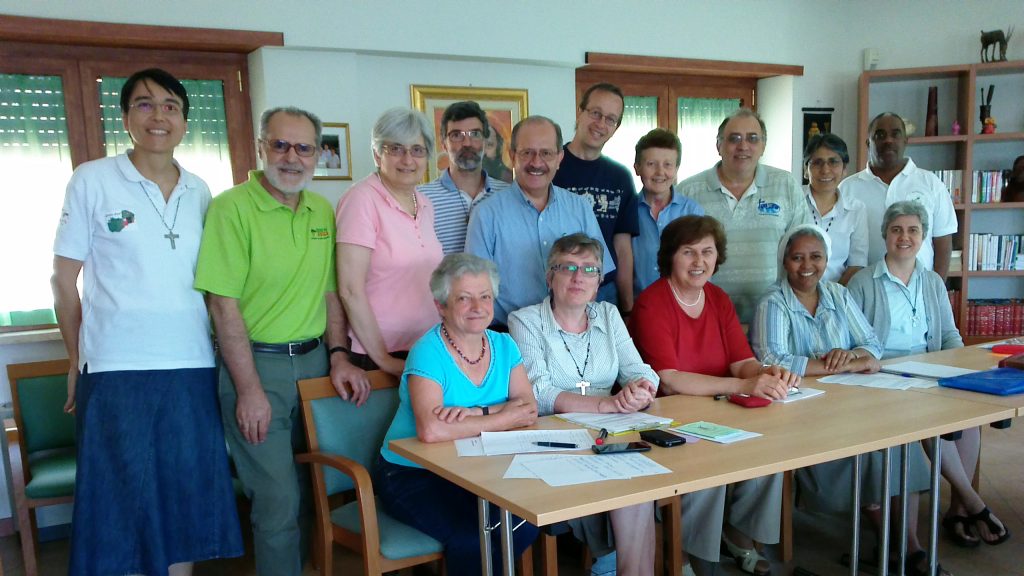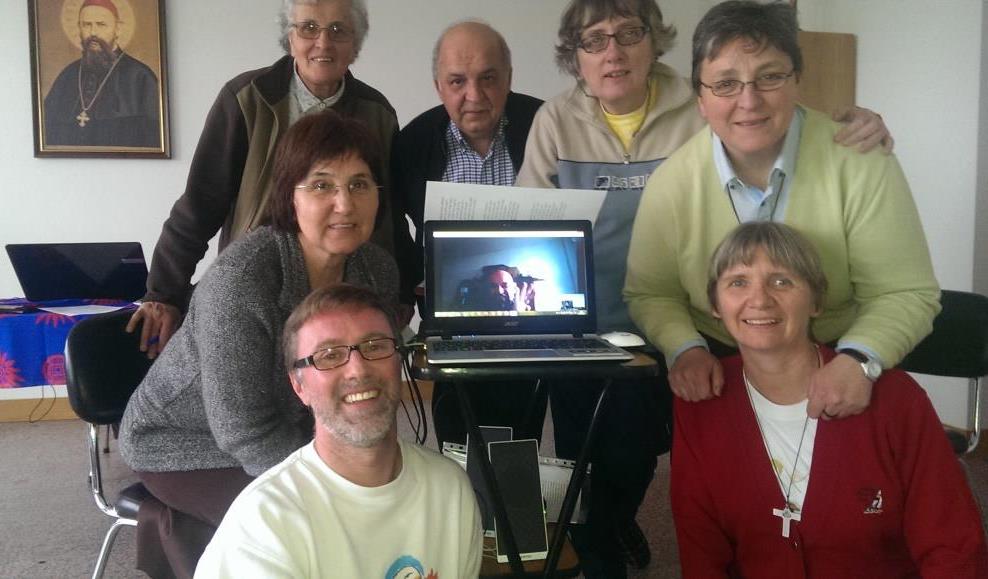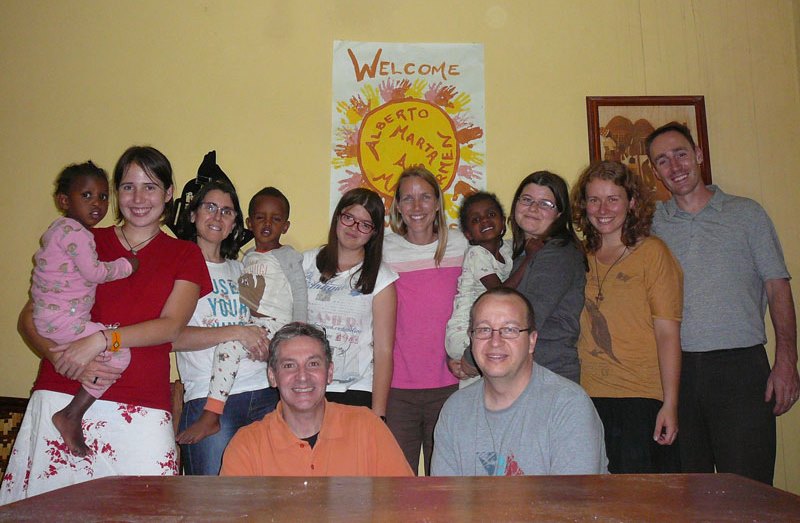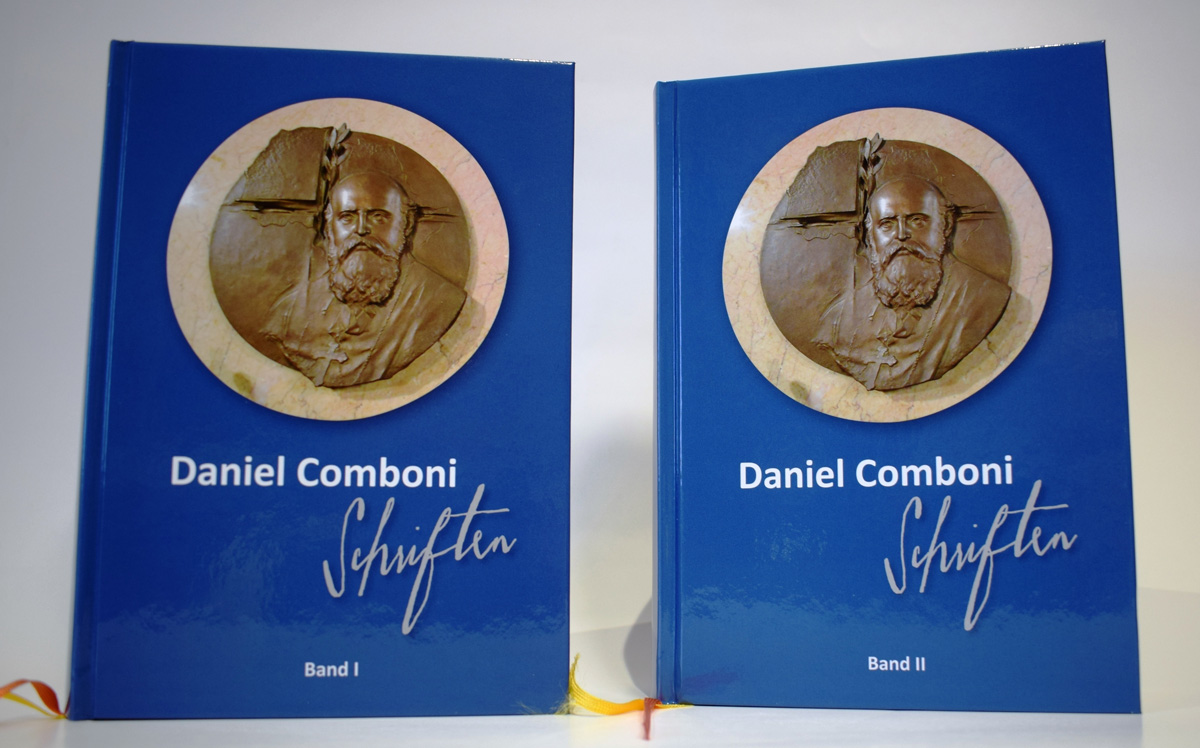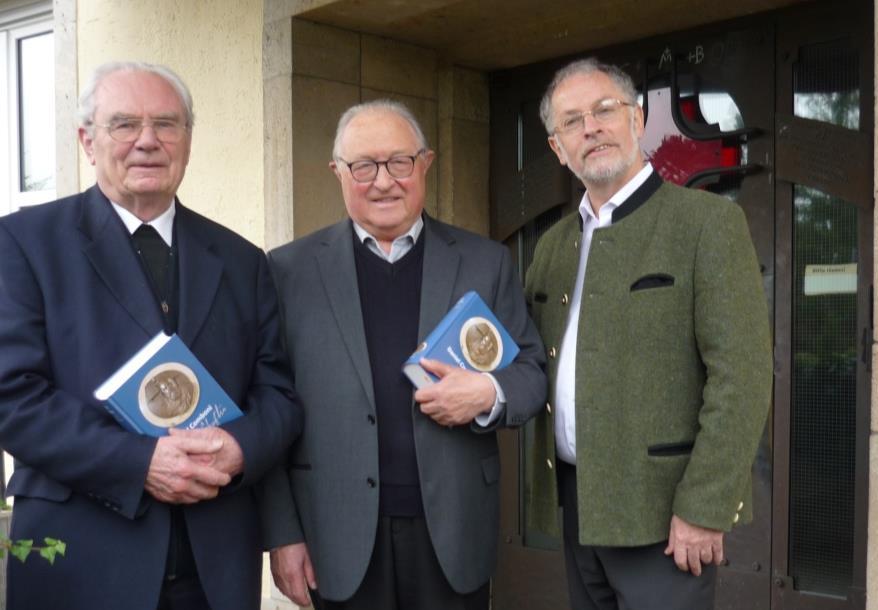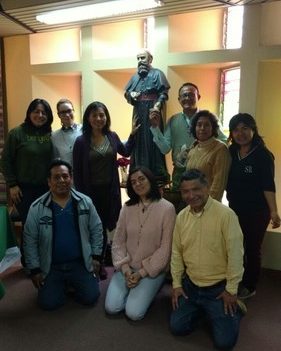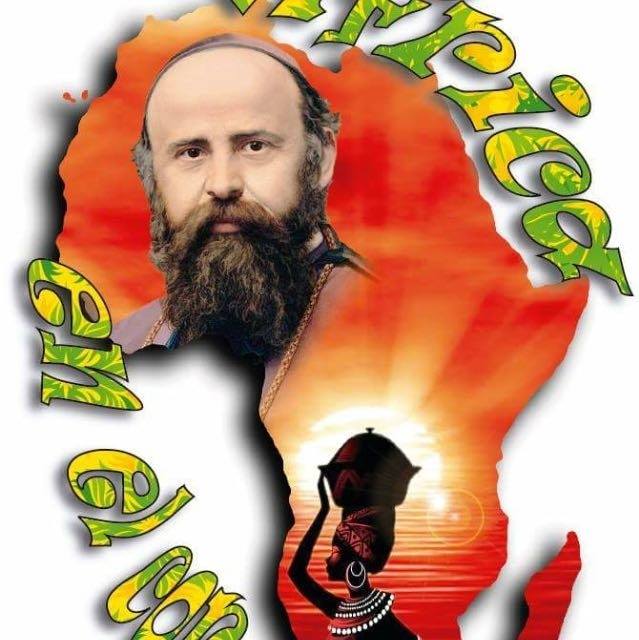
Thanks, St. Daniel Comboni,
for having founded the Institute
“Sing to the Lord, all the earth… Enter the temple gates with thanksgiving… Bless his name. The Lord is good, his love is eternal and his faithfulness lasts for ever.” (Psalm 100).
Dear confreres, Happy St. Daniel Comboni’s Feast Day!
In this year, when we celebrate the 150th anniversary of our Institute, one of the great things that we contemplate is the celebration of the holiness of Comboni in the Christian communities of the local Churches in which we live and of which we are part.
“Comboni bendito é Deus em teu nome”, “Comboni, God is blessed in your name”: so were our dear brothers and sisters, our parishioners in Curitiba, whom I met during my visit to the province and to the confreres of Brazil. Yes, a local Church in Brazil, far from Africa, blessed be God and praised be St. Daniel Comboni. How beautiful that Daniel Comboni, our Father and Founder, became such an attractive figure, thanks to the sharing made by the Comboni Missionaries, the Comboni Sisters, The Secular Comboni Missionaries and the Comboni Lay Missionaries. Yes, our saints men and women speak to everyone and everywhere. In Mozambique, where the 150 years of life of the Institute were celebrated together with the 70 years of presence and the generous service of the Comboni Missionaries in the parish of Benfica-Maputo, the good young people of the choir were singing “Continente Africano alegremo-nos e cantemos, o mundo inteiro alegre-se e cante dando graças ao Senhor. Foi um profeta no seu tempo. Denunciou a escravidão. Ouviu o grito dos Africanos”, “African continent, let’s rejoice and sing, may the whole world rejoice and sing, giving thanks to the Lord, for Comboni was a prophet in his time. He denounced slavery and listened to the African people’s cry”.
Thank you, Comboni. Thanks Africa, because you have moulded Comboni and made of him a holy and generous man of God.
Dear Brothers, in this year when we celebrate the 150th anniversary of our missionary Institute, we want to thank God for the gift of St. Daniele Comboni and the gift of the confreres who have spent and donated themselves totally for the people of God in the mission. We thank our confreres who were killed while they were engaged in the service of the Gospel and the mission. We want to say thank you: they have become “holy and capable”: “Holy and capable. Saintliness without capability or capability without saintliness are of very little value to a person who wants to undertake a missionary career. The missionary man or woman cannot go to heaven alone. They must go to heaven in the company of the souls they have helped to save. So in the first place holiness, completely free from sin and offence against God, and humble. But this is not enough: love too is necessary to make these men and women do good work.” (Writing 6655)
In the context of the 150th anniversary of our Institute, it would be very nice to dedicate an amount of thanksgiving prayers to our “holy and capable” confreres, who have been consumed for the Kingdom of God among the peoples they had been sent to. Contemplating our holy and capable confreres causes us to ask: and I, am I willing to make a journey of constant conversion? Do I aspire to missionary holiness and to the evangelical ability that contributes to the lives of my brothers and sisters, with whom we build the Kingdom of God, and to our world so desperate and wounded?
Thinking of our “holy and capable” confreres, we realize that we have a deep and rich well of missionary and Comboni spirituality from which to draw. We have many confreres of all ages, cultures and races who yesterday and today have lived and live filled with this great spirituality and have become exemplary. “There are many well-identified Comboni Missionaries, generous and ready to give up their lives for Christ and the Mission; they spend their lives quietly, day after day, in the various services entrust to them” (AC 2015, No. 14).
In this year when we celebrate the 150th anniversary of our Institute, I would like to mention four confreres and one sister whose process of beatification and canonisation, within the Christian communities and the Church, has already begun.
“Holy and capable” in evangelization: “From me depends the salvation of so many souls; the holier I am, the more people I will save… One who much loves, will do a lot and one who much suffers will achieve a lot. In front of Our Lady of Lourdes, I have asked for the grace of martyrdom,”: “O Sacred Heart of Jesus, I lock myself in the wound of your sweetest side. I have handed over the keys to my dear Mother Mary and besieged her not to open it unless it is for coming to enjoy you for all eternity” (Mgr. Antonio Maria Roveggio, from his personal diary).
“Holy and capable” in community life: “Between me and my confreres I remember to have insisted twice, and even with some passion, in my opinion, for perhaps about two minutes, so that the harmony, perhaps, was not of the most pleasant, but bless be God both times, immediately, I begged them to forgive my passionate words, and they said: yes, yes, okay. If rarely it happens to succeed in splashing water on other people’s fire, one does it willingly, especially as it costs little” (Bro. Giosuè dei Cas, 13.1.1927, Letter to Sup. Gen., office letter).
“Holy and capable” in charity: “Holiness is the tree and love is its fruit. The more we strive to love, know, serve God, the more we feel attracted, as to a magnet, to serve Him in the person of all the needy, especially the most distant and suffering.” (Fr. Bernardo Sartori, Letter from Otumbari, 19.01.1979).
“Holy and capable” in the desire to live the Gospel: “I’ll have just to continue in the effort to live the presence of Jesus in my heart and to ask myself frequently what He would do in my place. I was struck by the thought of listening to the word of God without raising barriers, and to converse with Jesus in the tabernacle without raising barriers. That is, not to defend myself with so many excuses if my life is different from the Word of God, and not to talk about Jesus and impose my petty human point of view. Unfortunately I have to repeat more or less the same resolutions as in the past” (Fr. Giuseppe Ambrosoli, Extract from the Spiritual Exercises, 9-15.1.1981).
“Holy and capable” in prophecy: “I love you all and love justice, and for justice it’s enough the willingness of every person, it’s enough the willingness of the Church and the community, before the revolt may cause unforeseeable brutality in our social environment. We do not approve of violence, even though we receive violence. The priest who is speaking to you has received death threats. Dear brother of mine, if my life belongs to you, also my death will belong to you” (Fr. Ezechiele Ramin, Homily at Cacoal, 17.02.1985).
“Holy and capable” in our collaboration: Sr. Maria Giuseppa Scandola, quite ill, sends a message to the sick young missionary, Fr. Giuseppe Beduschi, saying “The Scilluk need you…, you will not die. I will I die in your place…” She offers her life in his place and dies after a few days (1.9.1903), while Fr. Giuseppe will survive and still live for many more years († 10.11.1924).
 Here are the sons and daughters of St. Daniel Comboni.
Here are the sons and daughters of St. Daniel Comboni.
St. Daniel Comboni, happy feast day.
Fr. Tesfaye Tadesse Gebresilasie, mccj
on behalf of the General Council
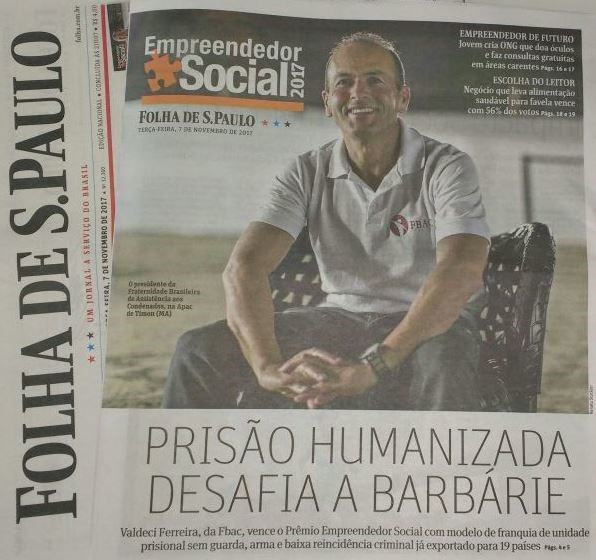 Valdeci Antonio Ferreira is the founder of the Comboni Lay Missionaries in Brazil. He is 55 years old and 34 of them have been dedicated to prisoners.
Valdeci Antonio Ferreira is the founder of the Comboni Lay Missionaries in Brazil. He is 55 years old and 34 of them have been dedicated to prisoners.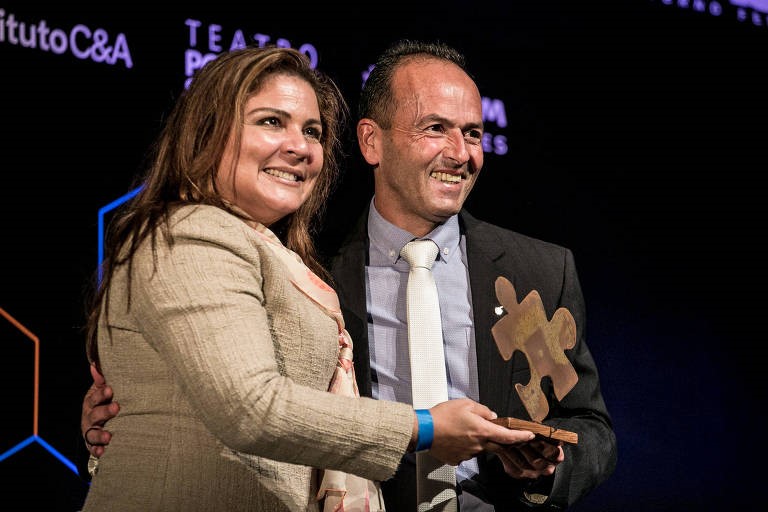 Valdeci Ferreira, of the FBAC, was given an award for the system of humane incarceration.
Valdeci Ferreira, of the FBAC, was given an award for the system of humane incarceration.



